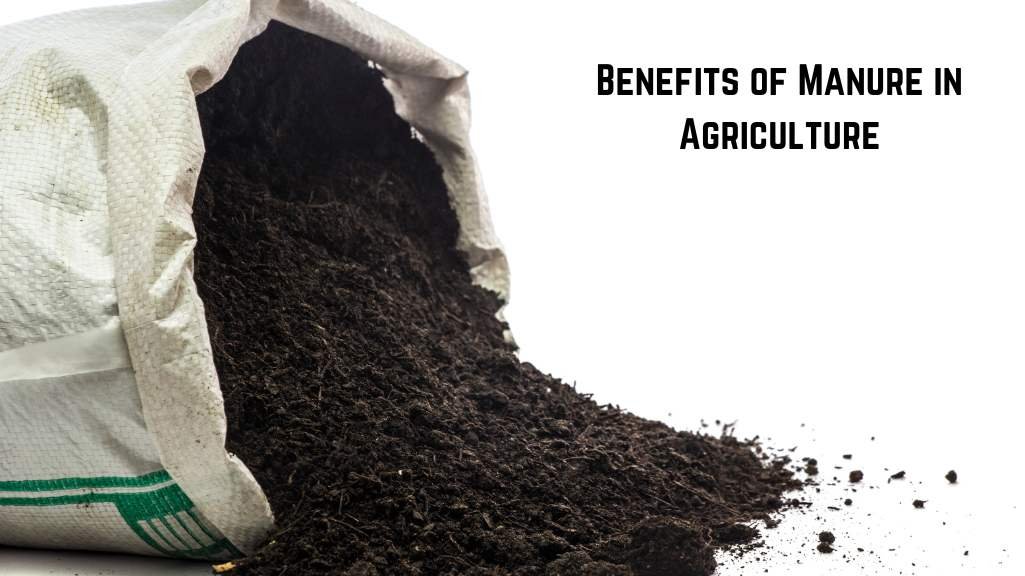Benefits of Manure in Agriculture and its Impact on Soil Fertility and Environment
Vikash Jain
. 4 min read
Dung from animals is used to make manure. In addition to that, it might include urine and bedding materials like sawdust or straw. Cow manure, horse manure, and poultry manure are the three most common types of manure that can be found and used as fertilizer in gardens. Although manure has a long history of serving as a valuable resource for farmers and smallholders, recent trends indicate that it is no longer as popular on an industrial scale as other types of fertilizers, specifically inorganic fertilizers. With the advent of online chat, individuals and gardening enthusiasts can now easily connect with suppliers and obtain the desired type and quantity of manure for their gardening needs.

Different Kinds of Manure
Green Manure
The amount of organic matter that is found in the soil can be increased using green manure. These types of manures have deep roots that penetrate the soil. These contribute to the control of weeds and the maintenance of healthy soil by preventing erosion.
Farmyard Manure
The structure of the soil can be improved by using manure from the farmyard, and it can also be used as a natural fertilizer. It raises the soil's capacity to store more water and nutrients and makes the soil more fertile. In addition to this, it raises the level of microbial activity in the soil, which in turn improves the mineral supply and the plant nutrients.
Compost Manure
It enhances the soil's capacity to hold both water and nutrients while also enhancing the structure of the soil. Therefore, it raises the nutrient value, which in turn leads to an improvement in the plants' overall health.
The Following is a List of the Benefits of Manure
Agriculture frequently makes use of manure, which is an organic material, as a source of organic fertilizer. It is typically made up of animal feces.
Encourages the Development of a Robust Soil Structure
The nutrients and other benefits that manure adds to the soil also help to maintain a healthy soil structure. These are the following:
- Nutrition: Manure contains a variety of macro- and micronutrients, three of the most important of which are nitrogen, phosphorus, and potassium for the development of plants. In addition to this, it possesses a microbial activity that makes these nutrients more readily available to plants and increases their accessibility.
- Soil Structure: The natural tilth agent that manure is helps to aerate the soil, bind the soil particles together, and promotes a healthy soil structure. Manure is a byproduct of animal digestion. Because of this, water retention is improved, and root penetration into the soil is made easier; consequently, plants are better able to obtain the water and oxygen they require.
- Environmental Benefits: Because it reduces the requirement for chemical fertilizers, manure is a more sustainable and environmentally friendly alternative to those. Because the organic matter in manure helps bind soil particles together, this practice also contributes to the prevention of soil erosion.
Supply the Ground with Minerals and Other Nutrients
The organic matter found in manure helps to improve the soil's structure, which in turn leads to increased water infiltration and greater water-holding capacity. As a result, crop water stress, soil erosion, and nutrient loss are all reduced. Warming the soil, which speeds up the process of decomposition, and lowering the soil's acidity level, or pH, less than chemical fertilizers do is how manure provides plants with instant access to nitrogen, phosphorus, potassium, and other essential nutrients.
Increases the Fertility of the Soil
Fertilization is a critical management strategy for increasing crop yields because it improves the fertility of the soil. However, there have only been a handful of studies that have used quantitative methods to investigate the relationships between fertilization, crop yields, and soil fertility. Because of the need to apply organic fertilizers in large quantities in order to satisfy the nutrient requirements of crops, it is prudent to apply resources that are readily available in the local area.
Impact of Manure on the Organic Matter of the Soil
The majority of the nutrients that are essential for plant growth, such as nitrogen, phosphorus, potassium, and micronutrients, are found in manure (Manure as a Source of Crop Nutrients and Soil Amendment). However, the potential benefits that manure could have for the environment come from the organic carbon that it contains.
- It helps improve the edaphic factors, which are things like (water-holding capacity).
- Because it makes the soil more porous, it enables the exchange of gases.
- The structure of the soil becomes more favorable.
- There are now more microorganisms living in the soil than there were before.
- The use of synthetic fertilizers wrecks havoc on our rivers.
Significance of Endemic Spices is as Follows
There are 17 countries around the world that are considered to be megadiverse, and these countries account for 70 percent of all known species. Endemism, or the number of species that are endemic to a certain territory, is the primary factor that is considered when determining whether or not a country is megadiverse.
Dangers Facing Endangered Species:
1. The health of endemic species is an important indicator of the state of the climate in a particular region, making them an essential component of ecosystems.
2. Because endemic species are genetically isolated and have fewer individuals, they are more likely to be negatively affected by changes in their environment.
3. Additional dangers, including hunting, poaching, the destruction of habitat, and the introduction of invasive species, all have the potential to cause irreparable harm to endemic species.
4. As a result of all of these dangers, endemic species call for a higher level of care and attention in order to be conserved.
Take Care of the Earth's Environment
- Protecting the natural habitat in which wild animals are found is one of the simplest and most efficient ways to assist in wildlife conservation efforts.
- Become a volunteer with local organizations that are working to restore native ecosystems such as forests, grasslands, and coastal areas by planting native species.
- Help protect the habitats of endangered species and other wildlife by taking part in a local trash clean-up event or organizing your own event in your community.
Save energy
Reducing the number of miles driven, purchasing energy-efficient vehicles and appliances, and taking the simple step of turning off the lights when you leave a room are all effective ways to cut down on energy consumption. You might also give some thought to becoming a member of a community solar program or installing solar panels at your house or place of business.
Conclusion
Manure is an organic material that is made up of animal feces, urine, and bedding materials such as sawdust or straw. It is a valuable resource for farmers and smallholders and is commonly used as a fertilizer in gardens. The three most common types of manure are cow manure, horse manure, and poultry manure. Green manure, farmyard manure, and compost manure are different types of manure with various benefits.
More Stories from
Acid Rains on Earth: Causes, Effects, and Solutions
Acid rain is caused by burning fossil fuels and can harm the environment and human health. It can be prevented by reducing fossil fuel use and increasing use of renewable energy.
Unveiling India's Volcanic Secrets: A Geological Overview
Explore India's unique volcanic history and the enduring forces of nature that continue to captivate scientists and adventurers alike.
Zero-Waste Living: Practical Tips for Reducing Environmental Impact
Discover the power of zero-waste living as this article offers practical tips and actionable advice for reducing your environmental impact.
Eco-Friendly Practices: How Individuals and Businesses Can Make a Difference
Discover the Power of Eco-Friendly Practices: Learn how individuals and businesses can contribute to a greener world by adopting sustainable measures.









.png?width=40&aspect_ratio=1:1)


.png?width=40&aspect_ratio=1:1)